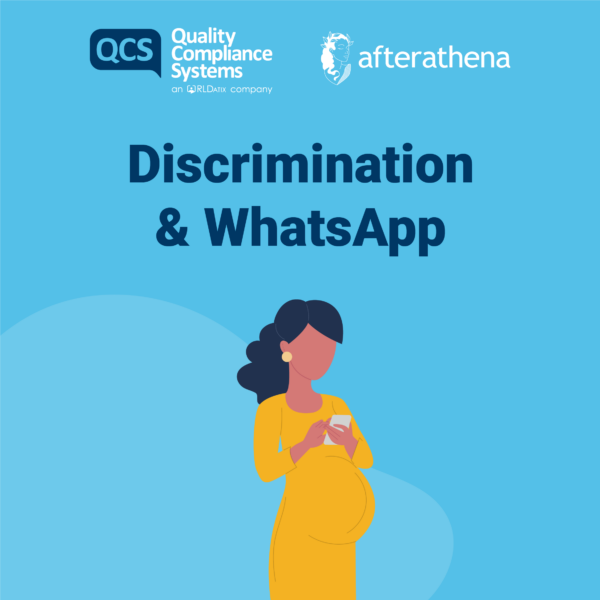The recent case of Lad -v- Lily Head Dental Practice Sales Ltd highlighted that denying someone access to the work group WhatsApp chat, whilst on maternity leave, can amount to discrimination.
Background
The Claimant, Asha Lad, had initially misplaced her work phone whilst on maternity leave and the employer refused to replace it or provide an alternative SIM card. The Claimant therefore had no access to her work phone or number, which she needed to access the WhatsApp work group chat.
Ms Lad emailed her employer, stating that she was upset that she could not access data on her work phone, and that she was being excluded from the WhatsApp group chat.
It was acknowledged that this was less favourable treatment, as the Claimant has felt isolated and was unable to see details of work updates, social events and other general chatter within the group. Further, she could not access other personal content she had shared within the work group chat, including pictures relating to her pregnancy and daughter.
Therefore, the Claimant, was able to successfully argue discrimination when she could not access the work group chat.
The employer attempted to argue that it was to the Claimant’s favour to be removed from the group chat whilst on maternity leave, which was rejected. The Tribunal acknowledged that whilst some individuals may enjoy the break from the group chat, this may not be the case for others. It was determined that by removing mothers from chats, which they were formerly a part of, may be considered isolating, as they are subsequently deprived of interaction with colleagues. A work group chat can be a way for employees to stay connected professionally and personally, whilst also keeping up to date with affairs within the organisation.
Further, the tribunal observed that an employee could choose whether to engage in the work group chat or not whilst on maternity leave, for example by archiving or silencing messages.
The employer in this case had made a unilateral decision to deny access to the group chat, therefore isolating Ms Lad from colleagues. This was viewed as less favourable treatment for someone on maternity leave and detrimental treatment, and therefore, the discrimination claim was upheld.
What does this mean for employers?
It is important for employers to seek the employees view in such circumstances and engage in open discussion. Whilst an employee may not want to be part of the work group chat during their maternity leave, some individuals may want to continue receiving these messages to feel connected with their colleagues and working life. In such a situation, you should let the employee decide what they want to do, to reduce the risks of allegations of unfair treatment.
If you are ever in doubt, seek legal advice early on, to avoid potential tribunal claims linked to maternity discrimination.






